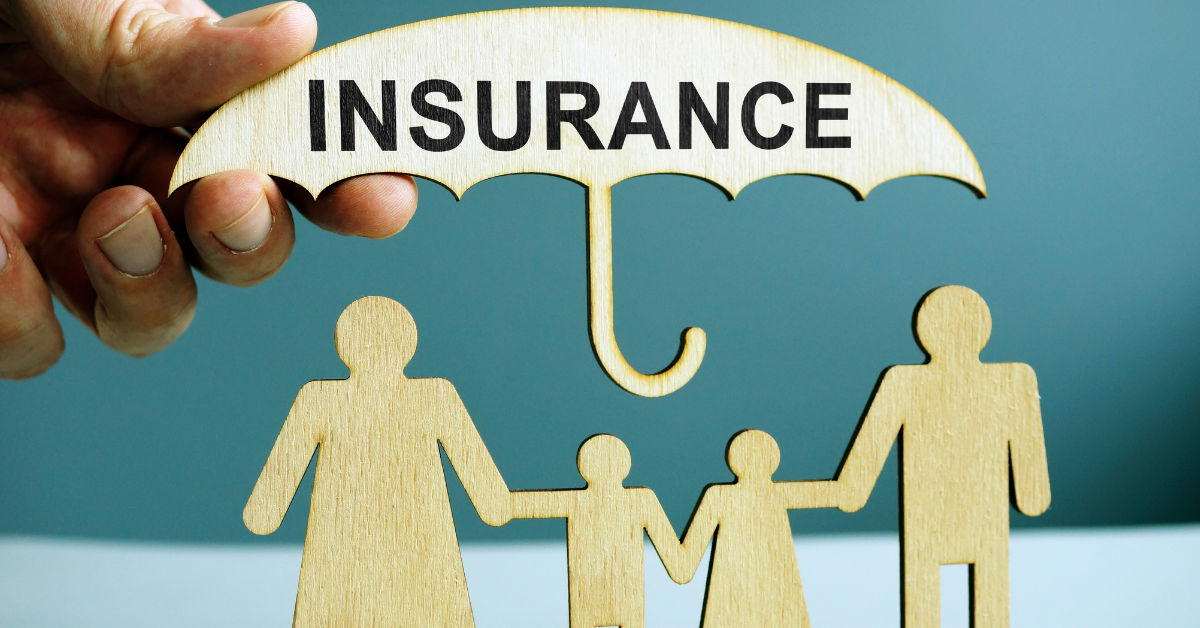Is life insurance halal? Everything you need to know

Key Takeaways
- Conventional term based life insurance is not permissible since this form of life insurance contains elements of gharar (uncertainty), maysir (gambling) and riba (interest) which are all deemed to be haram in Islam. More on that later in the article!
- A takaful model can provide a halal life insurance alternative which also provides financial coverage to your family in the event you pass away.
- We recommend every Muslim to get a hallal life insurance plan to protect their family from financial hardships that may arise after their passing.
Islamic scholars have unanimously deemed term life insurance to be haram (more on that to come later). Conventional life insurance have several problematic areas causing them to be prohibited in Islam. Read to find out how you can ensure the financial security of your family in the event of your death while adhering to the tenants of our faith.
What is Life Insurance?
Life insurance is a contract between an individual and a life insurance company. The insurance company, also known as the insurer, agrees to pay out a designated sum of money to the beneficiary if the insured dies. The insured pays periodic premiums to the insurer, and the insurer invests them into different financial securities.
The beneficiaries are designated by the insured individual taking the life insurance policy. Beneficiaries are usually the children, spouse or family members of the individual taking the life insurance.
Most life insurance policies operate based on a fixed-term period, meaning that if the insurer dies during that period, the insurance money is paid out. When the insurance period ends and the insurer survives, no money is paid to the beneficiaries.
Additionally, most of the financial securities that these life insurance companies invest the pool of money in are haram, which is something to keep in mind when searching for and evaluating life insurance options. There are two classifications of life insurance:
Term Life Insurance
Term life insurance policies are valid for a specified time period hence the word “term”. During this period, the insured pays premiums to the insurance company and if the insured dies during this time period, the beneficiaries will receive the insurance payout. If the insured passes away outside of the term period, the obligation for the insurance company to payout ends. Additionally, if the individual survives after the completion of the term, the insurance payments will not be paid out to the beneficiaries. The bottom line is: the insurance company will not be liable to pay any money to the surviving individual or beneficiaries after the completion of the term.
Insurance companies take calculated risks when giving out term life insurance policies. They offer term life insurance to individuals typically below the age of 55, working a safe/low risk job and maintaining a healthy lifestyle. For instance, if the term life insurance plan covers an individual from the ages of 30 to 50, the company will collect insurance premiums for 20 years. If the individual makes it to the age of 50, the insurance company alone benefits from the contract. And the individual/their beneficiaries receive nothing even after paying insurance premiums for 20 years!
Whole Life Insurance/ Life Assurance
Whole life insurance (also known as life assurance) is a life insurance policy that pays out a lump sum of money to the beneficiaries whenever the insured dies. Because there is no fixed term, the beneficiaries certainly receive the payout in the event of the insured’s death.
This form of life insurance is commonly referred to as a permanent policy that builds value over time as the insured contributes their insurance premium. In this arrangement, the insured must pay premiums for generally a longer period (i.e. until retirement). Whole life insurance has guaranteed payout but generally speaking has higher premiums than term insurance. The bottom line is: as long as the policy holder keeps their policy active and in good standing (does not owe any premiums), their beneficiaries will be entitled to certain benefits and payouts (which vary from insurance company to another).
Why is Term Life Insurance Haram?
So why are most conventional life insurance haram? By enlarge, they are deemed haram due to several problematic issues such as 1) the way the contracts are structured 2) the nature of the investments insurance companies invest the pool of money gathered from premiums 3) the gambling nature and risk levels associated with timing an individuals death. As such, there is a unanimous scholarly opinion indicating that term life insurance to be haram. A few scholars that have spoken about the subject include Mufti Menk, Dr. Zakir Naik, and Yasir Qadhi to name a few.
As alluded to earlier, there are three major reasons why it is not permissible for Muslims to have term life insurance.
Gharar (Uncertainty)
Shariah forbids Muslims from investing in ventures that are highly uncertain or there is a huge risk of deception. Term life insurance policies have the element of gharar because if the insured survived the term of life insurance, there will be no payouts to the beneficiary and the investment would be lost.
Insurance companies give out insurance policies with measurable and contained risks to individuals who are in good health and whose chances of dying are considerably low. Insurance companies remain profitable while individuals lose their investments.
Maysir (Gambling)
Term life insurance policies also have an element of maysir because if the insured does not pass away during the term of the life insurance, there will be no payouts. The only way the insured will profit from life insurance is if the insured dies leaving behind the fortune for the beneficiaries. There are two extremes which resemble the act of gambling where only one of the two parties benefits from the agreement.
Riba (Interest)
Riba is not permissible in Islam and any transaction that involves riba is deemed haram. Life insurance companies invest the premiums from clients into investments that offer interest. Because the amount your beneficiaries would receive after your death will be sourced from interest based investments, the life insurance policies don’t meet the standards of Shariah.
Insurance policies that avoid all three of these are permissible in Islam. Here is a halal alternative to term life insurance:
Takaful
Earlier in the article we mentioned two type of life insurance: term and whole life. You may be wondering what Takaful is and why we did not discuss whole life insurance in great depth.
In short, the Takaful system is a Shariah-compliant insurance model where funds (premiums) are pooled from the insured members per an agreed upon contract. These funds are invested by the financial/Insurance institution in low-risk halal investments where profits and losses are shared. Usually, a third-party Takaful provider has access to the funds and they administer Takaful payouts to the beneficiaries of those that pass away.
In a broad sense, the concept of takaful can be applied to many different types of insurance policies, but for the purposes of this article, we are evaluating takaful from the lens of life insurance.
Because Takaful is based on the principles of cooperation and shared profit/ loss, Shariah scholars deem it permissible in Islam. Takaful follows the risk-sharing model instead of a risk-transfer model which sets it apart from conventional term based life insurance.
Depending on where you live, there may or may not be a viable Islamic takaful life insurance option for you. That being said, whole life insurance with a few caveats can be a form of Takaful as long as the three conditions we mentioned earlier are met. Generally speaking the first two items (Gharar and Maysir) are not an issue since the beneficiaries of the insured will receive a payout if/when they pass away. However the third item (riba) is a bit tricky, due diligence is required to assess the nature of their investments and if the investments they use are shariah compliant or not.
How to Select Halal Life Insurance?
In a best case scenario, you should select a halal takaful based Life insurance policy if that option is available to you. If you are investing or are looking to invest in a life insurance policy that does not explicitly marketed as a shariah compliant life insurance, then here are some questions that you need to ask yourself before you take on such a policy:
- Does the insurance policy involve a term or is it whole life?
- Where does the insurance company invest your money? Is the investment interest-free?
- Are the payouts fixed?
- Is the investment speculative in nature?
If there are no halal alternatives to life insurance available, you can compare and contrast different life insurance policies to find One that adheres to shariah principles. Generally, you should avoid holding a life insurance policy that invests your premiums in ventures that are not deemed halal such as gambling, pork, alcohol, adult content, interest, etc.
Why Should You Get Halal Life Insurance?
A life insurance policy is a great financial asset to secure the future of your dependents such as your spouse and children. A life insurance policy can cover funeral expenses, debt repayment, gaps in income, mortgage payments, and your child's education to name a few. In fact, we see this as a major step to building a secure future for your children and partner.
According to the hadith narrated by al-Tirmidhi, Prophet PBUH saw a Bedouin leaving his camel untied before he went away. The Prophet PBUH asked the man why he did not tie his camel? The man replied that he had put his trust in Allah. Prophet PBUH said tie your camel first, then put your trust in Allah.
This hadith shows that Muslims should do whatever they can within their power to secure themselves financially and then put their trust in Allah. Shariah compliant Insurance policies offer protection from financial hardships to your dependents especially if you don't have assets of value that will be passed on to them.
Conclusion
No matter how enticing the television commercials make term life insurance to be, they are flat out not permissible for Muslims. The Islamic alternative is Takaful, which is a shariah compliant model that lets your investment in the form of insurance premiums grow riba-free with no elements of gharar or maysir. If you currently hold a term life insurance policy and were not aware that it is haram, we strongly urge you to look for a permissible alternative (takaful based halal life insurance provider or a whole life insurance provider that has shariah compliant investments),





